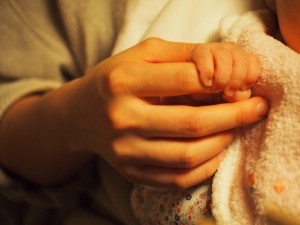My life has two faces, one is a life coach, another is an activist.
Here is an interview session my friend Francesco lead a couple of years ago for me as an activist.
English translation by Megumi Hirokawa.
まほうつかいのお仕事と同時に活動家もしています。
イタリアのフランチェスコのインタビューを、めぐちゃんが翻訳してくれたので公開します。
同じ未来を作る仲間で、弟みたいに大好きなフランチェスコについてはいくつかの記事があるのでどうぞ!

フランチェスコが教えてくれたレシピもついでにどうぞ^^

Why I am an activist
(日本語は下にあります, Japanese follows.)
A full story how I turned into an activist is here.
そもそも、どうして私がアクティビストになったのかはこちらに英文があります。
Q: Talk about Tokyo Urban Permaculture, what is the aim? What is the goal?
Tokyo Urban Permaculture aims to move people into action.
If we realize we actually have our stewardship of Earth, we will find ways to make this planet a more beautiful and harmonious place.
It is actually not so difficult. We can cultivate our inter-being relationship and appreciate things we already have. Just to relax with your friends and family is another way to make such state of mind.
So to speak, it is the lifestyle of 200 or 300 years back that we need to restore, when people were not swamped by the fast speed of life. To get there, we need to bring new changes in our lives and create a space for innovation.
Tokyo Urban Permaculture (TUP) was founded by Kai Sawyer, an activist who had been practicing permaculture in a jungle of Costa Rica until 2011. The nuclear plant accident in Fukushima made a great impact on his course of action. He realized it was the dominant money culture in urban areas that should be changed. Permaculture in jungles wasn’t the solution for cultivating a more earth-centered consciousness. That’s why he returned to Japan to start TUP.
Kai was doing TUP on his own, but more people like me resonated with him and joined him. There are 20 active members and almost 10,000 followers on Facebook.
There is a transition town movement in Japan, starting off in a town called Fujino. In another town called Isumi, people are working really hard to make their town like Totnes. Those two towns are just a few hours away from Tokyo, but still it is easy to get a large piece of land.
On the other hand, about 70% of the population in Japan is concentrated in urban areas. There are not so many people living in rural areas like Isumi and Fujino. Big cities such as Tokyo, Fukuoka, Nagoya, and Osaka make the cornerstone of our everyday lives. That means, Japan won’t change unless those areas transform. The transition town movement is still going on in countrysides, as a model to create a small version of our earth. I think it is a good trend.
As TUP, we wish to create a sustainable society in urban areas, where human beings and nature can coexist. And we want to do this with the concept of permaculture.
Q: What is the most difficult thing to change in this society? Newer generation, older generation, what is easy to transmit?
I believe everyone has a potential, and knows the importance of the blue sky, nature, children’s laughters, and friendship. We don’t want to give up on having a good time with friends over a good meal and drink. We also know it is important to have clean water and protect animals living in it, as well as other animals. I think everyone has a yearning for it, but in Japan, it is a little difficult to get scientific data and know about what is going on in the rest of the world.
If they know the situation and know a fun and easy solution for it, they will feel like doing it. I think we can make a society, where each of us plays our own part, feels more connected and becomes more generous to each other. So, if there is any difficulty, it is that they don’t have good access to the information.
Q: What is the heritage of Japanese culture that should be kept and not thrown away? Certain practices were forgotten.
There are so many important ideas that should be kept, but Otagaisama, or mutuality in Japanese, is one of the most important ideas for TUP.
Otagaisama is based on the relationship without monetary exchange. It’s not that I do 10 to someone because he or she has done 10 to me. It comes from a simple awareness. It is that people in the past have done so much, and so I can exist thanks to their efforts. This awareness inspires us to do from a sense of love, with no expectation of return. I think it’s how the Japanese society has been functioning from old times.
Another idea is Onkochishin, or creating something new by learning from history. We can find something good in the old wisdom and make innovation based on the current technology.
Also, there is an idea that we need to know we have enough. We are given all what we need for living. We need to realize we have everything for us to live.
Q: Did you see more improvements in Japanese society? Or are things going worse?
People say that the world has become more divided. On one hand, some people are becoming pessimistic and more conservative. They tend to look away from the reality.
On the other hand, I see more young people joining in TUP, and they know a lot. They see things from a wide perspective, and I feel trust and hope for the the future. Those in their 10s and 20s are so energetic that I can die anytime.
Q: What is the spiritual value in this society?
TUP places an importance on spirituality, promoting non-violent communication and mindfulness. It is based on what Kai learned from visiting eco villages and permaculture sites around the world. No matter how heavenly the place looks, it can turn into hell if the relationship is not working. That’s how he started to look internally and nurture the inter-being relationship.
I completely agree with his philosophy, because I know that when I am in a good state of mind, things go so smoothly. To me, the state of being is more important than action taken with strong belief.
Q: What do you think about the world that keeps changing? Technology, modernization, and capitalization has changed the world both in better and worse ways.
It is true that Japanese lifestyle has become modernized and closer to that of Western countries. Even so, I heard an interesting story from my Japanese friend. When she went to a temple in the US for a mindfulness training, there was a time everyone had to place the cushions in lines. She noticed only those from Japan could place them so neatly. I think it is because a sense of beauty and accuracy is already built in us like a cultural DNA, and we are programmed to discern what is good, what is right, and what is beautiful.
Despite the change in our lifestyle, this asset hasn’t been ruined. When we see water, we want to clean it. When we see something beautiful, we want to make a bow. It is sacredness that we all have, and if we start from there, we can naturally connect to the consciousness, wanting to restore polluted water and calm violence. That’s the legacy we Japanese people carry. I think it is an important cultural gene.
Q: 東京アーバンパーマカルチャーについて聞かせて。目的やゴールはなんなのか
東京アーバンパーマーカルチャーのゴールは、動ける人を増やすこと。
動ける人を増やすことというのは、人と地球がもっと共存して暮らせるよう、人が地球の「お世話係」として生きる方法があると思っています。
そのために私たちができることはすごく簡単なことで。人間関係を大切にするとか、物を丁寧に使うとか、時間を大切な人とゆっくり過ごすとか、言ってしまえばたぶん200年、300年前には皆がそういうふうに暮らしていたような、スピードに流されない暮らし方を今の社会の中で取り戻すこと。そのために降りなきゃいけない場所もあるし、広げていきたいエッジもあると考えています。
東京アーバンパーマカルチャーは、ソーヤー海っていう人がコスタリカのジャングルでパーマカルチャー暮らしをしていた2011年に福島の原発が起きて、ジャングルやパーマカルチャー天国の中で幸せに過ごすのではなくて、本当に地球を育みながら暮らしていきたいと思ったら、都会こそ変えないといけないと気づいてコスタリカのジャングルから日本に帰ってきた時に始まりました。
海くんはしばらく一人で活動していて、私のような仲間がどんどん海くんに共感して、今はコアに20人くらい、Facebookで10,000人ぐらいのフォロワーがいるグループになっています。(2021年12月現在)
私たちが活動している領域は5つあって、1つはパーマカルチャー。パーマカルチャーのデザインやシステム思考を使って、農業だけではなくて色々な社会の領域で使っていくこと。それから、どんなにやっている活動が素敵でも、人間関係は自分の心の中が整っていなかったら外側に出てくるものもうまくいかないと思っているので、マインドフルネス、心が整っていることを大切にしています。
それらをもって変えたいのは、今の私たちが消費者になってしまうような社会を変えて私たちがもっと本来のクリエイターとしての力を取り戻して、ワクワクした命を生きること。特にこれまであまり表面に出ることがなかった女性や若い人たちの活躍を応援することもしています。
そういう風にしていくと、これまでの金融資本主義や消費社会とはちょっと違う方向に行くんだろうなと思っていて、新しい社会の枠組みの提案としてギフトエコロジーという、貨幣に依存しないで、お互いがお互いのできることで支え合っていくっていう関係性をつくる取り組みをしています。
日本のトランジションタウンムーブメント(TT)は藤野や千葉のいすみのようなところで盛んです。TT発祥のトットネスのような町にしようとがんばっている仲間たちがたくさんいます。彼らの場所は東京から1時間から3時間くらいの場所で、広い土地が自由に手に入る可能性があります。
一方、日本の人口の7割ぐらいは都市部に集中しています。東京や福岡や名古屋や大阪、大きな都市に住んでいるところこそがリアルの生活の場になっていて、そこでのライフスタイル・暮らし方を変えないと日本は変わらないんだろうなと思っているので、小さな地球を作るモデルとしての全国でのトランジションタウンムーブメントや、地方での新しい社会の作り方が実験としてずっと続いているのは素敵なことだと思っています。
そして、そこではできないことを、都会でパーマカルチャーのコンセプトを使ってすることで都会型サステナブルな共生ができ、人と自然と共生ができる社会を作れないかなというのが東京アーバンパーマカルチャーの願いです。
(関連してこのような活動もしています。博報堂さんのTokyo Urban Farming. こちらは企業さんとの連携で、東京を食べられる森にしようというプロジェクト)
Q. なんでみんなが動かないんだと思う?どこに希望があって、どこに課題があると感じている?
いつも感じるのは、すべての人の中に可能性があると思っていて、青い空や緑や子供たちの笑い声や仲間とのつながり、おいしいごはん、一緒にお酒を飲むこと、なんかはみんなが手放したくないものだと思っています。きれいな水や動物や海、海の生き物、すべての命を守ること。その思いは誰の中にもあると思っている。
ただ科学的な数字とか世界が今どうなってるんだっけ、っていうことがちょっと日本では耳に入りづらい。
もしそれをみんなが知ったら、そしてそれに対する簡単で楽しいやり方があるってわかったら、みんなそれをやりたくなる。それを一人ずつがやっていって、もっと優しくつながれる社会が簡単につくれるんじゃないかなと思っています。だから難しさがあるとしたら、ただ情報につながってないだけ。
Q. 残すべき日本文化の遺産はある?日本の伝統的な考え方で、これからも採用できるものはある?
とてもたくさんの教えがあります。一番最初に思うのは、私たち東京アーバンパーマカルチャーが大切にしている「おたがいさま」という考え方です。
「おたがいさま」っていうのは精算されない関係性。誰かが10してくれたから私が10回返すっていうことではなくて、過去の人類がそうしてきてくれたおかげで、今の私がある。だから他の人たちにも、ただ「愛からそれをする」という見返りのない行為のこと。それで日本の社会は回ってきたと思っています。
次には「温故知新」という言葉があって、「古きを知って新しきを作っていくこと」。
古いことの中にある良いことを残しながら、新しい知恵や繋がり方でそれをより定着しやすいものにしていくこと。
それから「足るを知る」ということ。すでに、生きるのに必要なものはすべてあること。
Q.日本社会はよくなってきていると思う?悪くなっていくと思う?
二極化が進んでいるという人もいます。より保守的になって、もう世界は変わらないと思って、見ないようにしている人もいるって言われる。私が東京アーバンパーマカルチャーをやっている限りにおいては、若くてすごくよく色んなことを知っていて、心がある人たちがどんどん仲間に集まってきていて、子供たちも若い頃から意識が広いから、すごく未来に信頼と希望を感じています。10代や20代の子たちがキラキラしていて、私はもういつ死んでもいいなっていつも思っている。
Q. 日本社会におけるスピリチュアリティ・精神性とはなんですか?
東京アーバンパーマカルチャーは精神性を大切にしている活動で、ノンバイオレントコミュニケーション(NVC)やマインドフルネスを使っています。それは海くんが世界のエコビレッジやパーマカルチャーの場所を周り、どんなに天国でも人間関係が最悪だったら地獄になっちゃうって気づいて、自分の心の中や人間関係を整え始めたことがきっかけ。
それを私も大切にしていて、実際、心が整っていると周りに起きる出来事もすべてうまくいくっていうことを実際知っている。確かな確信を持って「何をするか(Do)よりもどうあるか(Be)」を大事にしています。
Q. 世界が変わり続けていることについてどう感じていますか?テクノロジーや近代化、資本主義化が世界を良くも悪くもしていたということについて
たしかに暮らし方は近代化していて、欧米の暮らし方にすごく近づいていると思っています。
その中で面白いなと思っていることが、日本人の友達がアメリカのウパヤ禅センターに滞在している時、座布団をみんなで並べる時間があったそうなんだけれども、外国の人はどうしても座布団をきちんと並べることができない。でも日本の人はそれを、ぴしっと前に向かって揃えることができる。
そういう美しさとか正確さのクオリティが、多分もう日本文化の DNAとして身体に刻まれていて、何を正しいと思うか、良きことと思うか、何を美しいと思うかっていうことがすでにプログラミングされているんじゃないかなと思っています。
それは暮らし方が変わっても、そんなにも損なわれてきていない。
水を見たらきれいにしたいと思う。美しいものを見たら拝みたくなる。その神性が私たちの中にはいつもある。
もしそこから物事を考えることができたら、水をこれ以上汚したくないとか、人に暴力的になりたくないっていうところに自然につながれると思っています。
それは日本人が持って来ている遺産。大切なミーム(文化的な遺伝子)なんじゃないかなと思っています。
